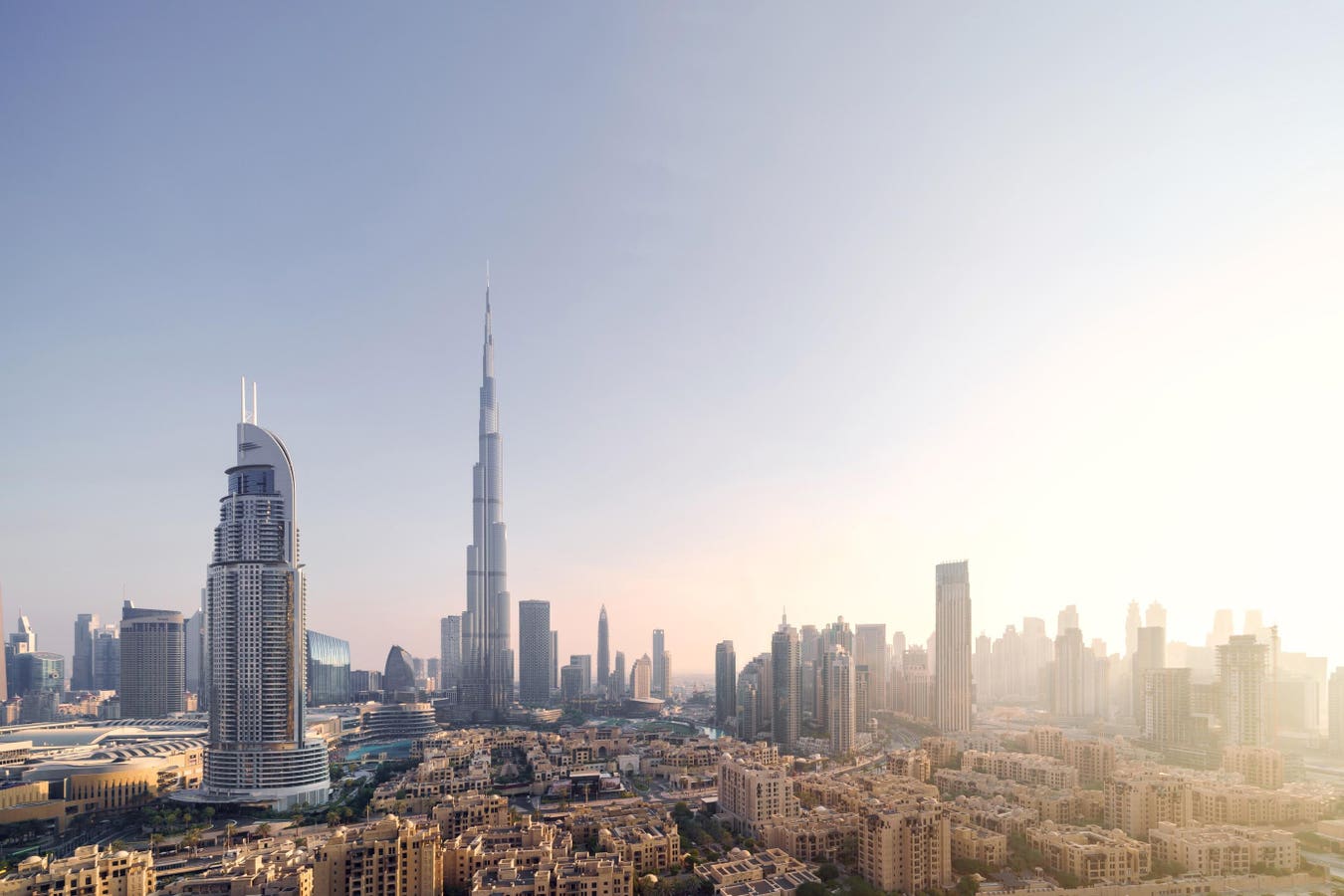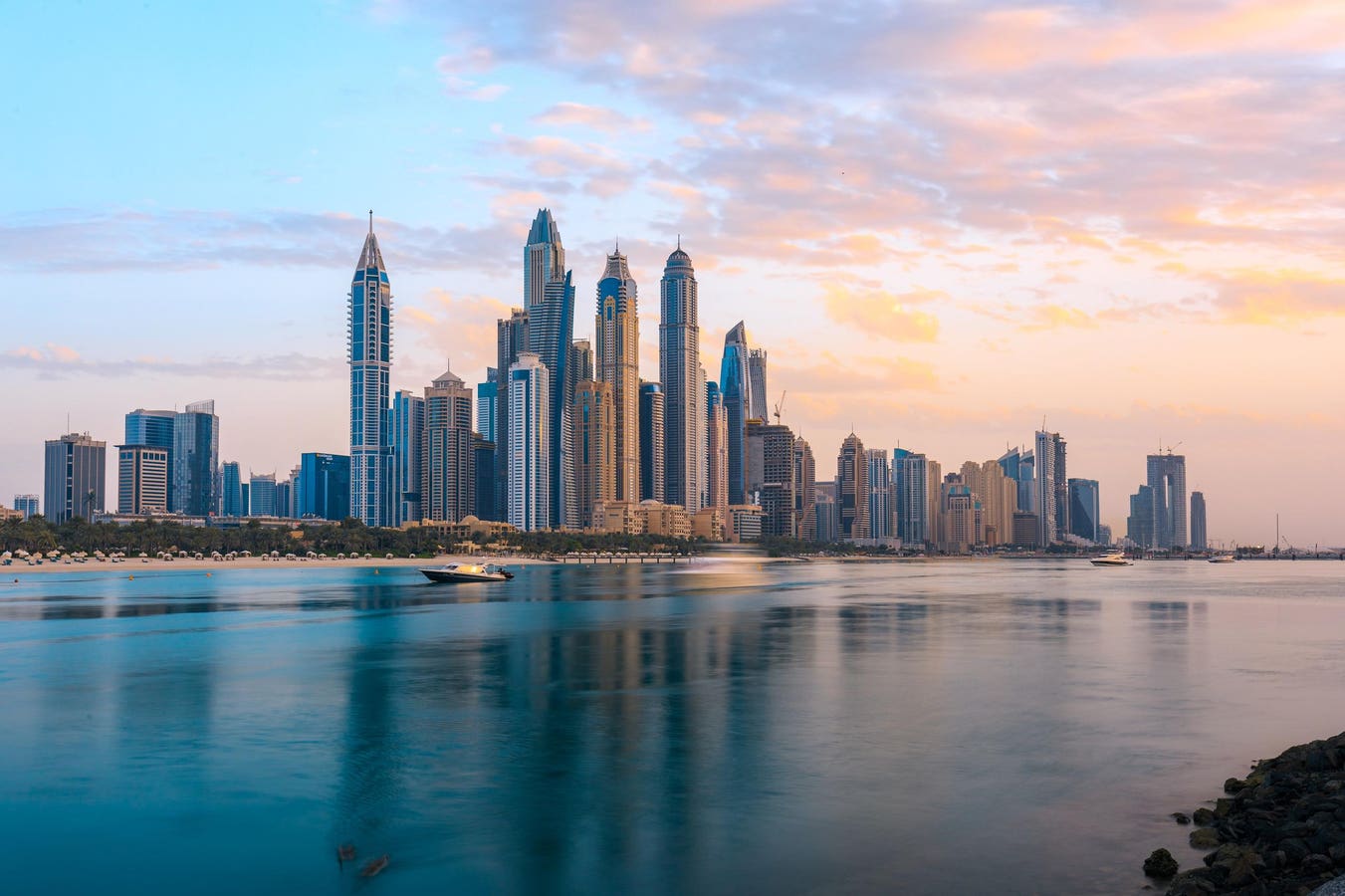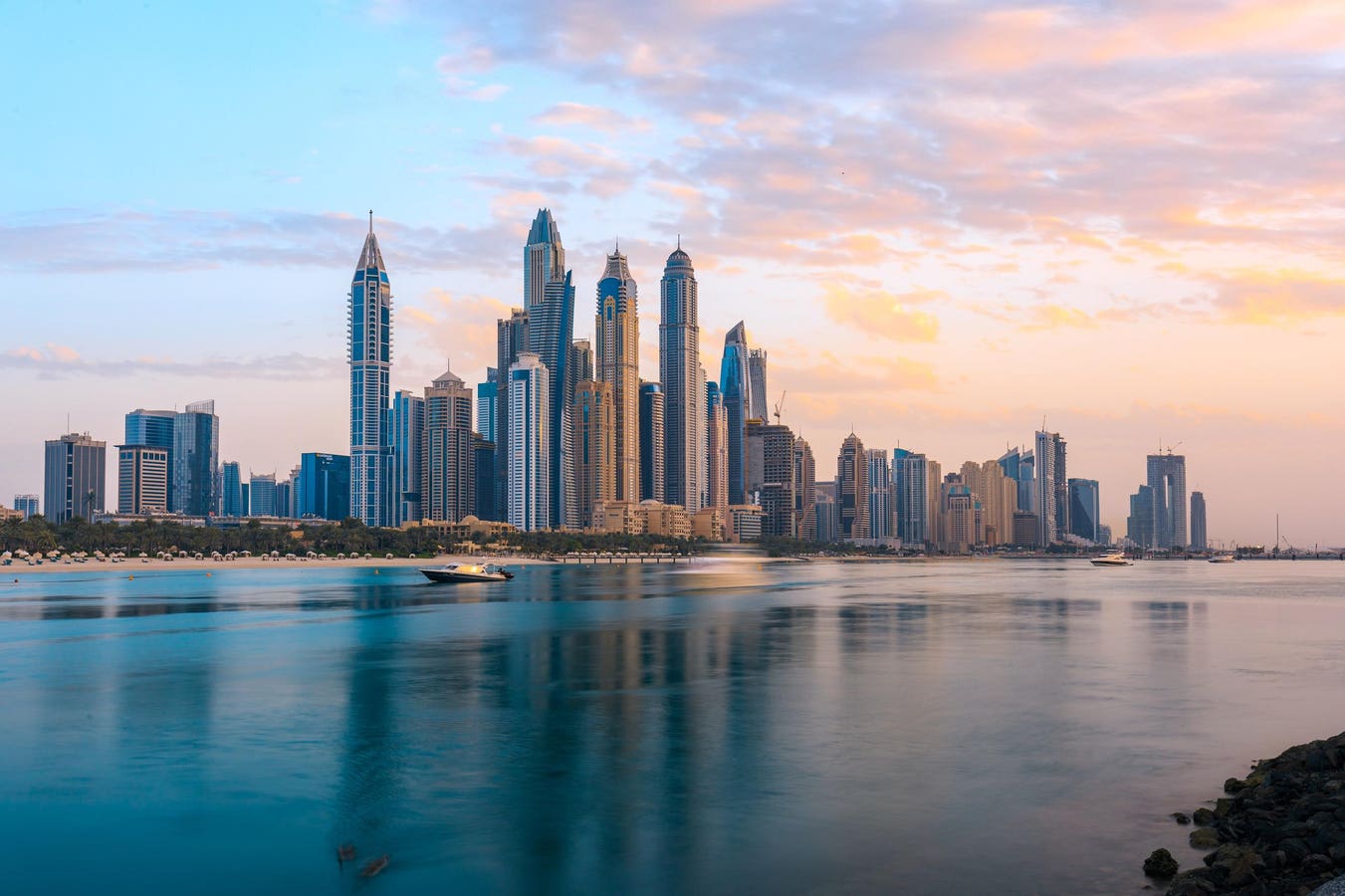## Forget Desert Sands, It’s Code and Crypto Taking Over: The UAE’s Wild Web3 Ride The United Arab Emirates, known for soaring skyscrapers and shimmering deserts, is now blazing a trail in a whole new landscape: the metaverse. This isn’t your typical gaming nation, though. Forget oil barons – the UAE is shifting gears, embracing the decentralized future powered by Web3 and AI. We’re diving deep into Forbes’ latest report on how this desert nation is transforming itself into a tech powerhouse, exploring the surprising strategies, ambitious investments, and audacious goals that are ushering in a new era for the UAE. Buckle up, gamers, because things are about to get seriously futuristic.
The UAE’s Rise to Web3 and AI Leadership

From Oil to Technology: The UAE’s Transformation into a Global FinTech Hub
The United Arab Emirates (UAE) has undergone a significant transformation in recent years, shifting its focus from being an oil-dependent economy to becoming a global leader in Web3 and AI. This transformation has been driven by the country’s vision to diversify its economy and position itself as a hub for innovation and technology.

A Welcoming Environment for Crypto
The UAE has adopted a progressive approach to cryptocurrency regulation, striking a balance between innovation and security. This has positioned it as a regional hub for crypto businesses and attracted significant investment in the digital asset space.
The government has implemented stringent Anti-Money Laundering (AML) and Know Your Customer (KYC) regulations to combat financial crime and ensure the integrity of the financial system. This proactive approach instills confidence in both domestic and international investors.

Clear Guidelines and Enforcement
The UAE’s regulatory framework is designed to support the growth of the digital asset sector while ensuring the protection of investors and consumers. The government has established clear guidelines and regulations for the operation of crypto exchanges, wallets, and other related services.
The authorities have also implemented a robust enforcement mechanism to ensure compliance with the regulations. This includes regular audits, inspections, and penalties for non-compliance.

A Focus on Emerging Technologies
The UAE’s regulatory framework is constantly evolving to keep pace with the rapid advancements in Web3 and AI. This adaptability ensures that the country remains at the forefront of technological innovation.
The government has established a range of initiatives and programs to support the development of emerging technologies, including the UAE’s AI Strategy and the Dubai Blockchain Strategy.
The Rise of a Tech Ecosystem: Where Innovation Meets Opportunity

Dubai and Abu Dhabi: Leading the Charge
These two emirates are spearheading the UAE’s tech transformation, with Dubai International Financial Centre (DIFC) and Abu Dhabi Global Market (ADGM) serving as major hubs for FinTech and digital asset businesses.
The DIFC has established itself as a leading FinTech hub, with a range of initiatives and programs to support the growth of the sector. The ADGM has also established itself as a major player, with a range of initiatives and programs to support the growth of the digital asset sector.
A Flourishing Startup Scene
The UAE has witnessed a surge in the number of tech startups, driven by a supportive ecosystem, access to funding, and a talent pool with diverse skills.
This entrepreneurial spirit is fueling the country’s growth as a tech powerhouse, with many startups achieving significant success and attracting investment from around the world.
Investing in the Future
The UAE government is actively investing in research and development, infrastructure, and educational initiatives to further strengthen its position as a global tech leader.
This investment is aimed at supporting the growth of the tech sector, including the development of emerging technologies such as AI, blockchain, and the Internet of Things (IoT).
UAE Advantage: Why It Could Be The Next Global FinTech Hub
The UAE has a strategic advantage in FinTech, with massive innovations like generative AI and blockchain transforming financial operations.
The country’s FinTech startups are already transforming financial transactions by focusing on innovating cryptocurrencies, and many such startups are looking to transform the FinTech market in the UAE.
Regulatory Haven
The UAE’s regulatory framework is designed to support the growth of the FinTech sector, with a range of initiatives and programs to support the development of emerging technologies.
The government has established a range of regulations and guidelines to ensure the integrity of the financial system, while also supporting innovation and entrepreneurship.
Cost of Starting a Business
The cost of starting a business in the UAE is lower than in other hubs like London, which is a primary reason FinTech companies are thriving there.
Startup costs in the UAE are reduced due to the availability of free zones, such as the DIFC and ADGM.
Regulatory And Licensing Framework For FinTech Growth
The regulatory framework in the UAE mandates that multiple licenses be obtained for your FinTech business, supervised by ADGM, DIFC and the Central Bank of the UAE.
ADGM issues the Financial Services Permission (FSP) permits, while the DIFC provides an Innovation Testing License (ITL), which generally takes 5 to 15 weeks for approval.
Stringent AML Regulations
The government has implemented stringent Anti-Money Laundering (AML) regulations to combat financial crime and ensure the integrity of the financial system.
The authorities have also implemented a robust enforcement mechanism to ensure compliance with the regulations.
How is Crypto Used in the UAE?
The central bank does not license cryptocurrencies, and they cannot be used as legal tender.
Crypto assets can, however, be owned and traded.
Crypto Adoption
Crypto adoption among the local population is low, at 10%, but is rising rapidly.
Figures released in April 2024 revealed that the average daily number of crypto traders in the region surpassed 500,000 in February, marking a 51% year-on-year rise.
UAE and Crypto: How the Right Regulatory Environment is Supporting Development
Abu Dhabi and Dubai are at the forefront of this change, with their regulatory efforts being described as “supercharged” and their focus on digital assets with the aim of attracting large, institutional investment.
They’ve achieved this using a two-pronged strategy: by initially extending existing regulatory frameworks for traditional finance to include digital assets, and then introducing innovative regulation of digital asset exchanges.
Dubai’s Dubai International Financial Centre (DIFC)
The DIFC has established itself as a leading FinTech hub, with a range of initiatives and programs to support the growth of the sector.
The DIFC’s Dubai Financial Services Authority is proactive and noted for balancing risk with innovation.
Impact of Enhanced AML Regulations
After being placed on the Financial Action Task Force (FATF)’s grey list in March 2022, the UAE has made swift progress in tackling money laundering and financial crime.
The government has passed legislation, and both issued and enforced regulations.
UAE’s Progress
Action has been taken against a number of companies, including some well-known names.
In the first quarter of 2023, the UAE issued fines of more than Dh115 million ($31.3 million) for money laundering and illicit financial activity.
How UAE Is Becoming A Global Tech Incubator
Even though the country has historically been lumped into the “oil country” category, the UAE is once again finding itself on a new frontier, shedding its image of an energy-focused country into one that’s in tune with technology.
The reality of their region is that oil does play a big role in the economy.
Focus on Technology
The UAE has plans to become a leader in global technology, according to the country’s recent announcement about its strategy for the next 50 years.
They’re focusing on a few strategic areas, including healthcare, renewable energies, big data and AI.
Big Data and AI
Big data and AI play a big role in their economic plan right now.
In fact, they have just become the first country to create and fill an artificial intelligence minister position.
UAE’s Progress
They have big aspirations within this space.
Through these actions, they are changing perceptions by walking the walk.
Conclusion
Conclusion: The UAE’s Ascent to Web3 and AI Supremacy
As we reflect on the remarkable journey of the UAE’s transformation from an oil-dependent economy to a technological powerhouse, it becomes clear that the nation’s focus on innovation, investment, and collaboration has yielded unprecedented success. The article’s key takeaways highlight the UAE’s strategic shift towards Web3 and AI, driven by forward-thinking initiatives such as Dubai’s Dubai Future District, Abu Dhabi’s G42, and the UAE’s robust regulatory framework. By embracing these emerging technologies, the UAE has established itself as a global hub for entrepreneurship, research, and technological advancement, attracting top talent and investors from around the world.
The significance of this transformation cannot be overstated. As the world grapples with the challenges of a rapidly changing digital landscape, the UAE’s leadership in Web3 and AI offers a beacon of hope and inspiration. The nation’s innovative spirit, coupled with its willingness to experiment and take calculated risks, has created a fertile ground for startups, entrepreneurs, and researchers to thrive. As a result, the UAE’s economy is poised for unprecedented growth, driven by the potential of these emerging technologies to create new industries, jobs, and opportunities. Moreover, the UAE’s commitment to Web3 and AI has far-reaching implications for global trade, security, and governance, underscoring the nation’s status as a thought leader in the world of technological innovation.
As we look to the future, it is clear that the UAE’s ascent to Web3 and AI leadership will have a profound impact on the global landscape. As the nation continues to push the boundaries of technological innovation, we can expect to see new breakthroughs, new industries, and new opportunities emerge. The question is no longer whether the UAE will maintain its position as a technological powerhouse, but how far it will continue to innovate and lead the world in the years to come. One thing is certain, however: the UAE’s journey to Web3 and AI supremacy is a testament to the power of human ingenuity, and a reminder that the future belongs to those who dare to imagine, innovate, and lead.